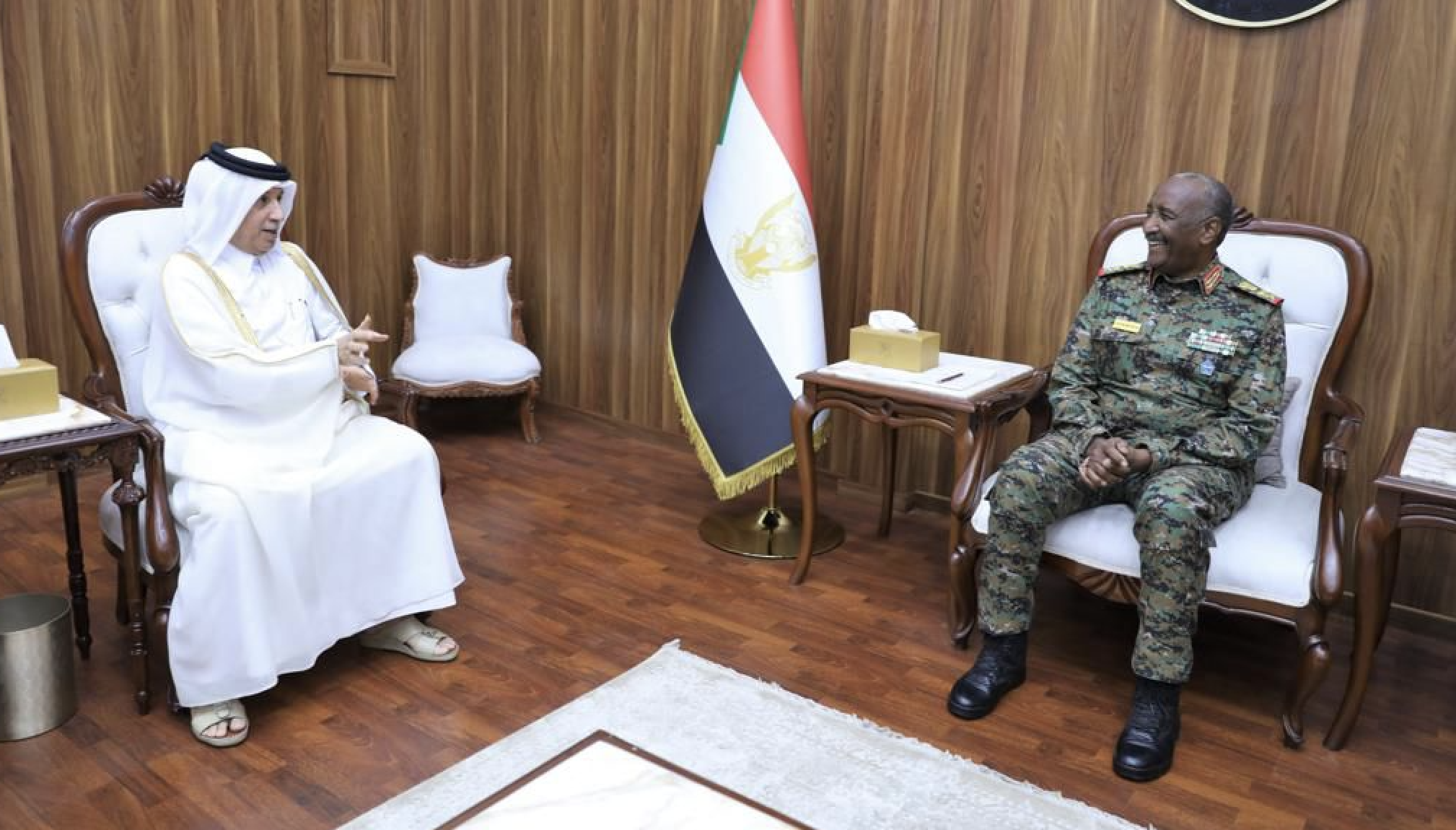The conflict between the Rapid Support Forces and the Sudanese military government resulted in a devastating toll: tens of thousands of civilians lost their lives, while more than 11 million people were displaced.
Sudan’s military commander and de facto leader, General Abdel Fattah al-Burhan, met with Qatar’s Minister of State for Foreign Affairs, Sultan bin Saad Al Muraikhi, against the backdrop of ceasefire negotiations in the Northeast African country, on Wednesday in Port Sudan.
According to Qatar’s Ministry of Foreign Affairs, the two officials discussed enhancing cooperation between Qatar and Sudan, exploring avenues to strengthen and support their bilateral relations.
The sitdown came after the paramilitary Rapid Support Forces (RSF) said on Wednesday that it was ready to participate after the United States invited the two factions in Sudan to mediate ceasefire talks.
“I welcome the invitation announced by Secretary Antony Blinken, the U.S. Secretary of State, and I declare our participation in the upcoming ceasefire talks on August 14, 2024, in Switzerland. I appreciate the efforts exerted by the United States, Saudi Arabia, and Switzerland in organizing these crucial talks,” the leader of RSP, Mohamed Hamdan Daglo, wrote on X.
The U.S. announced that Saudi Arabia will co-host the negotiations, which will include the African Union, Egypt, the United Arab Emirates, and the United Nations as observers.
Previous talks in Jeddah, Saudi Arabia, repeatedly failed to end the fighting, yielding only temporary truces, which were all immediately broken by both sides last year.
U.S. Secretary of State Antony Blinken said in a statement: “The talks in Switzerland aim to reach a nationwide cessation of violence, enabling humanitarian access to all those in need, and develop a robust monitoring and verification mechanism to ensure implementation of any agreement.”
Al-Burhan has yet to respond to the invitation.
Since April 2023, the conflict between the RSF and the Sudanese military government has resulted in a devastating toll, killing tens of thousands of civilians, while more than 11 million people were displaced, as reported by the International Organization for Migration (IOM).
The war has left half the population of about 50 million facing a hunger crisis and in need of humanitarian aid, the most of any country.







